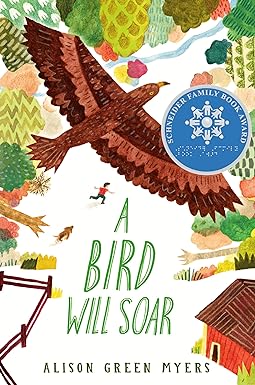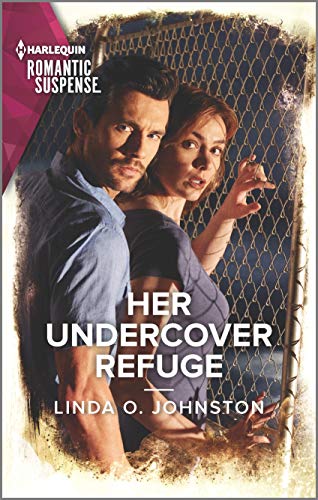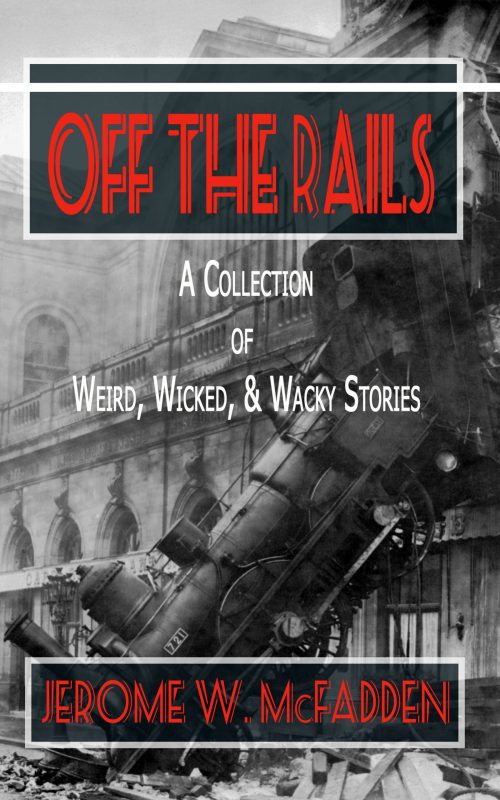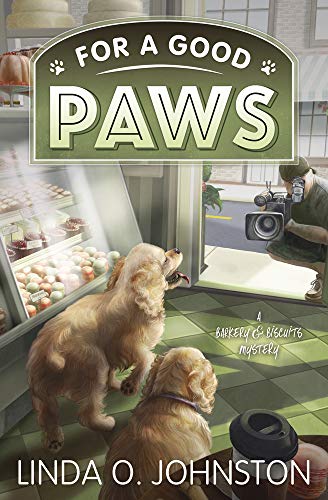Once upon a story… never gets easier and why I’d rather be cleaning the bathroom by Jina Bacarr
January 11, 2025 by Jina Bacarr in category Jina’s Book Chat, Writing tagged as Jina's book chat, romance', writing, writing historicals, writing tips
.————–
We live in a world of instant communication. Instant oatmeal… instant noodle cups and instant coffee. Pods, anyone? (God help me, I refuse to succumb to the latter.)
But there’s no such thing as instant book writing. Instant brilliant idea, yes. A wonderful story can come to you in a flash, but writing the dang thing can be pure terror.
It never, I repeat, never goes according to plan and it’s times like that I’d rather clean the bathroom. Your characters complain about everything. Their age, weight, hair color (blond, anyone?). And if you write historicals, you can’t change dates because your heroine wants you to, new characters pop up and you can’t get rid of them, and oh, getting everyone’s names, you feel like the old woman in the shoe naming her brood. Characters complain about that, too.
So, why do we do it? I’m on a merry go round with my latest Paris WW2 novel. Finding the focus, etc. I’ve wanted to get off several times but something keeps me hanging on.
What is it? Not sticky glue.
No, because this is a story that must be told. A brave circus queen who rescued children from the Nazis while flying fifty feet up on the trapeze in Occupied Europe. I know where I’m going, finally, but getting there is hell. That’s where craft comes in.

So here are my 6 Helpful Tips for Historical Writers:
1 — Take a break. Read a book that’s NOT for research. Your brain will love you.
2 — Call a friend. Writer-friendly. Someone who ‘gets it’ when you lament your hero ‘won’t open up and tell you his secrets.’
3 — Butt in chair and write ANYTHING that comes into your head related to your story. Some of mty best stuff comes from that. Don’t be afriad it will sound dumb. It’s called ‘editing’ to get the best stuff out of it.
5 — Meditate with your heroine — go into deep pov with her, who she is, what she wants more than anything, what she swears she’ll never do and then make her do it.
6 — Be flexible. Are you writing in the right time for your story? Are you trying to cover too much time in your story? History is fascinating but figure out the core of your story. You may have to adjust the year or era. Yes, it’s a pain, but you’ll be happier without the pressure of trying to make the shoe ‘fit’ when it never will.
It’s taken me a while, but yes, I feel good about my story. I shall leave cleaning the bathroom to next week… the week after maybe? Back to writing… with a smile on my face and the toilet brush back in its proper holder.
And oh, I bought fresh coffee for tonight’s writing session. Real coffee. Gelson’s Columbian brew I got on sale. Now that’s what I call ‘heavenly’ inspiration.
===================
My latest 2 book series about PARIS WW2:

2 sisters at war with the Nazis… and each other https://www.kobo.com/gb/en/ebook/sisters-at-war-2
from BoldwoodBooks
In my story Justine is the victim of sexual assault by the SS. ‘Sisters at War’ explores wartime sexual assault and how it affects the lives of Justine and Eve Beaufort in Wartime Paris.
——————–
I drew on my own experiences when I started a series of historical novels set in Wartime Paris about the brave women who fought in the French Resistance.
Who are the Beaufort Sisters?
They’re beautiful
They’re smart
They’re dangerous
They’re at war with the Nazis… and each other.

Tips for Writing for a Contest by Carol L. Wright
November 13, 2022 by Bethlehem Writers Group in category From a Cabin in the Woods by Members of Bethlehem Writers Group tagged as Barb Goffman, BWG, Carol L. Wright, Short Story Award, Writing contests, writing tips
It’s always exciting to enter a writing contest—at least until it comes to the actual writing.
Since I both write for submission and run the annual Bethlehem Writers Roundtable Short Story award competition, I’ve developed a few tips for writing to a theme, keeping within the word count limits, and what to avoid. I hope these might be of help.
And we’re making a special announcement at the end!
When writing to a theme:
- Write a new story instead of trying to wedge thematic elements into an existing story. It shows.
- Don’t write the first thing that comes into your head. It popped into a hundred other heads, too. You don’t want to be competing with a hundred other stories similar to yours.
- Brainstorm to find a fresh slant on the theme. Writing something from a slightly different angle will help your story stand out.
- Be creative with your title. Too many entries will use the theme in the title. You want your title to be unique.
Staying within word limits:
- Start with your protagonist in the middle of action. Hook readers immediately.
- Refer to, but don’t overly explain backstory. You can imply an unhealed wound or past conflict between characters, but in a short story, the reader does not need to know the details unless they have a direct relationship to the current plot.
- Keep descriptions pithy. A few words can paint a picture.
- Use contractions, compound words, or hyphenated words. These count as only one word each
- Do not use ellipses to show pauses or gaps. They are correctly typed as: space-dot-space-dot-space-dot-space. Unfortunately, each dot counts as a word! Use dashes instead. Some word counters count words connected by a dash as one word!
- Simplify verbs. For example: she left, instead of she was gone or she had departed. You could even have a one-word sentence: Gone!
- Use vivid verbs. It eliminates the need for adverbs or adjectives. For example: the storm raged instead of the storm was blowing strongly.
- Use the words you need, but not one word more. Remember, the word limit is a maximum, not a minimum or a target word count. No contest judge wants to read a story that appears to be padded with extra words.
- On the other hand, if the contest calls for stories of up to 5000 words, a very short story, e.g. 500 words, will not be competitive. You cannot do the world building or character development in a few words that you could accomplish with more words.
Contest Don’ts:
- Don’t flatter judges in a cover letter. They know it’s just designed to butter them up and can seem annoying.
- Don’t email the contest runner with questions that are answered in the call for submissions. Really annoying.
- Don’t argue with the rules, break the rules, or ask for exceptions to the rules. The rules are there for a reason and have to be applied consistently to be a fair contest.
- Don’t complain that winning stories aren’t as good as yours. All judging is subjective—and you cannot be objective about your own work.
- And definitely don’t ask for names and email addresses of judges so you can complain to them!
Now for the announcement:
The Bethlehem Writers Roundtable announces its 2023 Short Story Award competition will be open from January 1 through March 31, 2023.
The theme is Season’s Readings. We are seeking stories of 2000 words or fewer that relate to the holiday season from Thanksgiving through New Year’s Day.
Cost to enter: $15
Winners receive:
- First Place: $250 and publication in the upcoming anthology, Seasons Readings: More Sweet, Funny, and Strange Holiday Tales. Anticipated publication: Fall 2024
- Second Place: $100 and publication in Bethlehem Writers Roundtable online literary journal
- Third Place: $50 and publication in Bethlehem Writers Roundtable online literary journal.
Our guest judge for 2023 is multi award-winning short story writer and professional editor Barb Goffman. Be sure to read her interview in Bethlehem Writers Roundtable Winter 2023 issue, coming out on January 1.
You can get all your questions answered on our website: http://bwgwritersroundtable.com/short-story-award-2/. I hope to be reading your story soon!
Good luck—and happy writing!
~ Carol L. Wright
1 0 Read moreTHE TRUTH ABOUT MUSES
May 15, 2019 by Rebecca Forster in category The Write Life by Rebecca Forster tagged as inspiration, writing, writing craft, writing life, writing process, writing tips
The other day I was musing about muses. This was a rather convoluted process that went something like this:
I want to write but I don’t have an idea. I should write, but I’m bummed because I don’t have an idea. I could write if I had a great idea. I need to get one and until I do, I’ll watch TV. There’s a movie on TV called The Muse. I’ll watch The Muse and get inspired.
This is how the musing went after the movie.
The Muse is awful. She’s demanding, self-centered, and doesn’t care about the writer’s work. Still, the he sees something in her. What does he see in her? I want a muse. I just don’t want a muse like that.
I turned off the TV, obsessed with the idea of getting a muse. I just had to figure out where to get one. Since I’d never actually seen a muse, I decided I better find out exactly what I was looking for.
In the dictionary, the first definition of muse is to be thrown into a deep state of dreamy abstraction. The second is a noun, naming any of the nine sister goddesses in Greek mythology that preside over song, poetry, the arts and sciences. The third definition is the one we think of most often, a human source of inspiration or a guiding genius.
With this information in hand, I analyzed my career and realized that a muse has guided me every step of the way. I have often found myself lost in a dream state inspired by another writer. Their work has more often than not sparked an idea for a book of my own or a shown me a new way of laying a story foundation or become a point of reference for an essential building block.
The second definition – the naming of the goddesses – is a matter of inspirational faith. I have always believed that there is ‘something’ hovering over artists that not only encourages the creative soul, but also gives it the courage needed to present its work to a critical public.
That brings us back to the movie and the third definition of muse: the source of inspiration that we can touch and talk to. For some people this is one person, for me it has been many. I don’t call them muses; I call them friends, lovers, family and colleagues. Each step of my career was inspired and moved forward by the muse of the moment, the one person I needed just then.
There was the high school teacher who told me I wrote well, my husband who rescued by early attempts from the trashcan, my children who proudly said their mom was a writer. As the years went on and the books piled up, there were editors who trained me and readers who cheered me on, inspiring me to be better at my craft. All these people were – as definition three would have us believe – guiding geniuses.
It doesn’t matter if they knew the roll they played in my writing. What matters is that I wrote because of them and never in spite of them. The truth is, all you have to do to find a muse is open your eyes, your mind, and your heart. That muse is there – sometimes where you least expect it.
0 0 Read moreOn writing…Getting Started
April 19, 2017 by Jenny Jensen in category On writing . . . by Jenny Jensen tagged as editing, Jenny Jensen, writing, writing tips
Thank you Mr. Atkinson www.wronghands1.com
E.B. White (co-author of Elements of Style) said, “An editor is a person who knows more about writing than writers do but has escaped the terrible desire to write.”
OK, I’m certainly not E. B. White but I am an editor and I’ve worked with writers of every genre for 20 challenging and enriching years. There is nothing more exciting than helping a writer move through the process of writing. With no skin in the game I can be objective about where a story has taken a wrong turn, hear a particular turn of phrase or a plot point that doesn’t ring true, see inconsistencies in characterization — and spot the typos and those pesky homophones that get overlooked to the great peril of publication. I ask the hard questions, I offer possible solutions. It’s a grand give and take.
You’re a writer. Your head is filled with bits of story: the perfect setting — a women watches in her rear view mirror as the wedding cake dumped on the highway recedes in the distance. A character — Mistress Renfrew is overly tall and awkward and harbors a secret passion for Lord Dumfrey’s collection of assassin’s knives. Odd events — the deadly rivalry for Miss Abundance at the Apple Valley fairground, a lake in summer, tidbits of history, the perfect love triangle ripe for explosion. But where to start? How to corral all those creative bits into a cohesive whole?
One method: start with a simple premise.
Can you express the premise of your book succinctly? If you can write the essence of your story in as few as fifteen words you are on the road to writing a novel. What happens next? The plot will come from the premise.
It’s the way you dress up that simple premise, populate it and move it forward in narrative form that makes the story emerge. Starting from a succinct premise gives you a foundation on which to build a great story. Whether it’s the characters that drive the action or action that drives the characters, the premise provides the blueprint to keep the work moving forward.
The premise should be carved in stone, but only as long as it supports the creative effort. Stone can be reshaped; Michelangelo did it all the time and look at those results.
Whether you’re a novice or a seasoned writer I look forward to sharing On Writing again here at A Slice of Orange to explore methods, tools and tricks of writing that can help your story shine.
Jenny Jensen
Editor
www.e-bookeditor.com
FIVE TIPS THAT TO SHARPEN YOUR WRITING
February 8, 2016 by A Slice of Orange in category Guest Posts, Spotlight tagged as A Boss Inc Novel, Into the Fury, Kat Martin, writing tipsI never give writing tips. I figure everyone has his own personal style. Plus some people are just naturally good. But I do think there are a few things authors can do to sharpen their work. Here are some of the things I think about when I am writing a novel.
1. Start with a hook. Make your first sentence or at least your first paragraph compelling. Make the reader want to read the book! In INTO THE FURY, my newest Romantic Suspense, the first sentence reads,
SINNERS, SLUTS, and WHORES–BEWARE. Your TIME is at HAND. Standing next to the long mahogany table in the conference room, Ethan Brodie re-read the note he’d just been handed.
Everyone who sees this paragraph recognizes the threat in that note. Someone–probably a woman–could be in grave peril.
With any luck, this opening will intrigue the reader enough to keep reading.
2. Enter late and leave early. In the above example, we’re starting in the middle of the scene. We’re not in the conference room waiting for Ethan to show up. We aren’t there until after he receives the note. From there we start charging forward, finding out what’s going to happen next. Just remember the reader isn’t interested in “Hi, how are you?†“I’m fine, and you?â€
At the end of the scene, get out.
3. Make sure there’s conflict in every scene. This doesn’t necessarily mean violent conflict. It can be man against nature, man against man, man against himself, anything that makes the reader interested in continuing.
In my example, the conflict in the opening scene of INTO THE FURY is mostly Ethan’s battle with himself. He doesn’t want to take a job bodyguarding what he thinks will be a bunch of air-headed models. He’s had too much woman trouble lately, but it’s a good job that pays well. They need his skills and so he decides to take it.
4. Stay in the active voice whenever possible. Try not to use the word was too many times. Here’s an example. A rumble of thunder in the sullen gray sky blotted the reverend’s next words. I could have written, The sound of thunder could be heard in the distance. The sky was a sullen gray. That’s passive voice. It’s important to stay active.
Personally, I have to work at this. I often go back and change from passive to active after I write the first draft.
5. Write characters that grow and change. Writing a character arc, it’s called. It means your characters learn something or do something that changes them. During the time Ethan is working with the La Belle lingerie models, he learns how difficult their job is. He comes to admire their work ethic and their brains.
It changes some of his thinking about the female sex and helps him realize the kind of woman he really wants in his life.
There are lots of great tips to writing. The five above I learned from studying very successful authors. Dean Koontz has a wonderful book called Learning To Write, but its out of print and hard to find.
All the authors I’ve studied, all the books by other authors that I’ve enjoyed through the years, have helped me immeasurably. I hope these tips will help you, too.
Best of luck with your writing and all good wishes for a terrific 2016.
New York Times bestselling author Kat Martin is a graduate of the University of California at Santa Barbara where she majored in Anthropology and also studied History. She is married to L.J. Martin, author of western, non-fiction, and suspense novels.
Her last 10 books have hit the prestigious New York Times bestseller list. AGAINST THE WILD, AGAINST THE SKY, and AGAINST THE TIDE her latest release, took top ten spots. Visti Kat at the following:
Affiliate Links
A Slice of Orange is an affiliate with some of the booksellers listed on this website, including Barnes & Nobel, Books A Million, iBooks, Kobo, and Smashwords. This means A Slice of Orange may earn a small advertising fee from sales made through the links used on this website. There are reminders of these affiliate links on the pages for individual books.
Search A Slice of Orange
Find a Column
Archives
Featured Books
A BIRD WILL SOAR
OFF THE RAILS: A Collection of Weird, Wicked, & Wacky Stories
What happens if everything you thought you understood goes . . . OFF THE RAILS?
More info →FOR A GOOD PAWS
Barkery owner Carrie Kennersly is leashed with a tale of two culprits.
More info →Newsletter
Contributing Authors
Search A Slice of Orange
Find a Column
Archives
Authors in the Bookstore
- A. E. Decker
- A. J. Scudiere
- A.J. Sidransky
- A.M. Roark
- Abby Collette
- Alanna Lucus
- Albert Marrin
- Alice Duncan
- Alina K. Field
- Alison Green Myers
- Andi Lawrencovna
- Andrew C Raiford
- Angela Pryce
- Aviva Vaughn
- Barbara Ankrum
- Bethlehem Writers Group, LLC
- Carol L. Wright
- Celeste Barclay
- Christina Alexandra
- Christopher D. Ochs
- Claire Davon
- Claire Naden
- Courtnee Turner Hoyle
- Courtney Annicchiarico
- D. Lieber
- Daniel V. Meier Jr.
- Debra Dixon
- Debra H. Goldstein
- Debra Holland
- Dee Ann Palmer
- Denise M. Colby
- Diane Benefiel
- Diane Sismour
- Dianna Sinovic
- DT Krippene
- E.B. Dawson
- Emilie Dallaire
- Emily Brightwell
- Emily PW Murphy
- Fae Rowen
- Faith L. Justice
- Frances Amati
- Geralyn Corcillo
- Glynnis Campbell
- Greg Jolley
- H. O. Charles
- Jaclyn Roché
- Jacqueline Diamond
- Janet Lynn and Will Zeilinger
- Jaya Mehta
- Jeannine Atkins
- Jeff Baird
- Jenna Barwin
- Jenne Kern
- Jennifer D. Bokal
- Jennifer Lyon
- Jerome W. McFadden
- Jill Piscitello
- Jina Bacarr
- Jo A. Hiestand
- Jodi Bogert
- Jolina Petersheim
- Jonathan Maberry
- Joy Allyson
- Judy Duarte
- Justin Murphy
- Justine Davis
- Kat Martin
- Kidd Wadsworth
- Kitty Bucholtz
- Kristy Tate
- Larry Deibert
- Larry Hamilton
- Laura Drake
- Laurie Stevens
- Leslie Knowles
- Li-Ying Lundquist
- Linda Carroll-Bradd
- Linda Lappin
- Linda McLaughlin
- Linda O. Johnston
- Lisa Preston
- Lolo Paige
- Loran Holt
- Lynette M. Burrows
- Lyssa Kay Adams
- Madeline Ash
- Margarita Engle
- Marguerite Quantaine
- Marianne H. Donley
- Mary Castillo
- Maureen Klovers
- Megan Haskell
- Melanie Waterbury
- Melisa Rivero
- Melissa Chambers
- Melodie Winawer
- Meriam Wilhelm
- Mikel J. Wilson
- Mindy Neff
- Monica McCabe
- Nancy Brashear
- Neetu Malik
- Nikki Prince
- Once Upon Anthologies
- Paula Gail Benson
- Penny Reid
- Peter J Barbour
- Priscilla Oliveras
- R. H. Kohno
- Rachel Hailey
- Ralph Hieb
- Ramcy Diek
- Ransom Stephens
- Rebecca Forster
- Renae Wrich
- Roxy Matthews
- Ryder Hunte Clancy
- Sally Paradysz
- Sheila Colón-Bagley
- Simone de Muñoz
- Sophie Barnes
- Susan Kaye Quinn
- Susan Lynn Meyer
- Susan Squires
- T. D. Fox
- Tara C. Allred
- Tara Lain
- Tari Lynn Jewett
- Terri Osburn
- Tracy Reed
- Vera Jane Cook
- Vicki Crum
- Writing Something Romantic
Affiliate Links
A Slice of Orange is an affiliate with some of the booksellers listed on this website, including Barnes & Nobel, Books A Million, iBooks, Kobo, and Smashwords. This means A Slice of Orange may earn a small advertising fee from sales made through the links used on this website. There are reminders of these affiliate links on the pages for individual books.











































